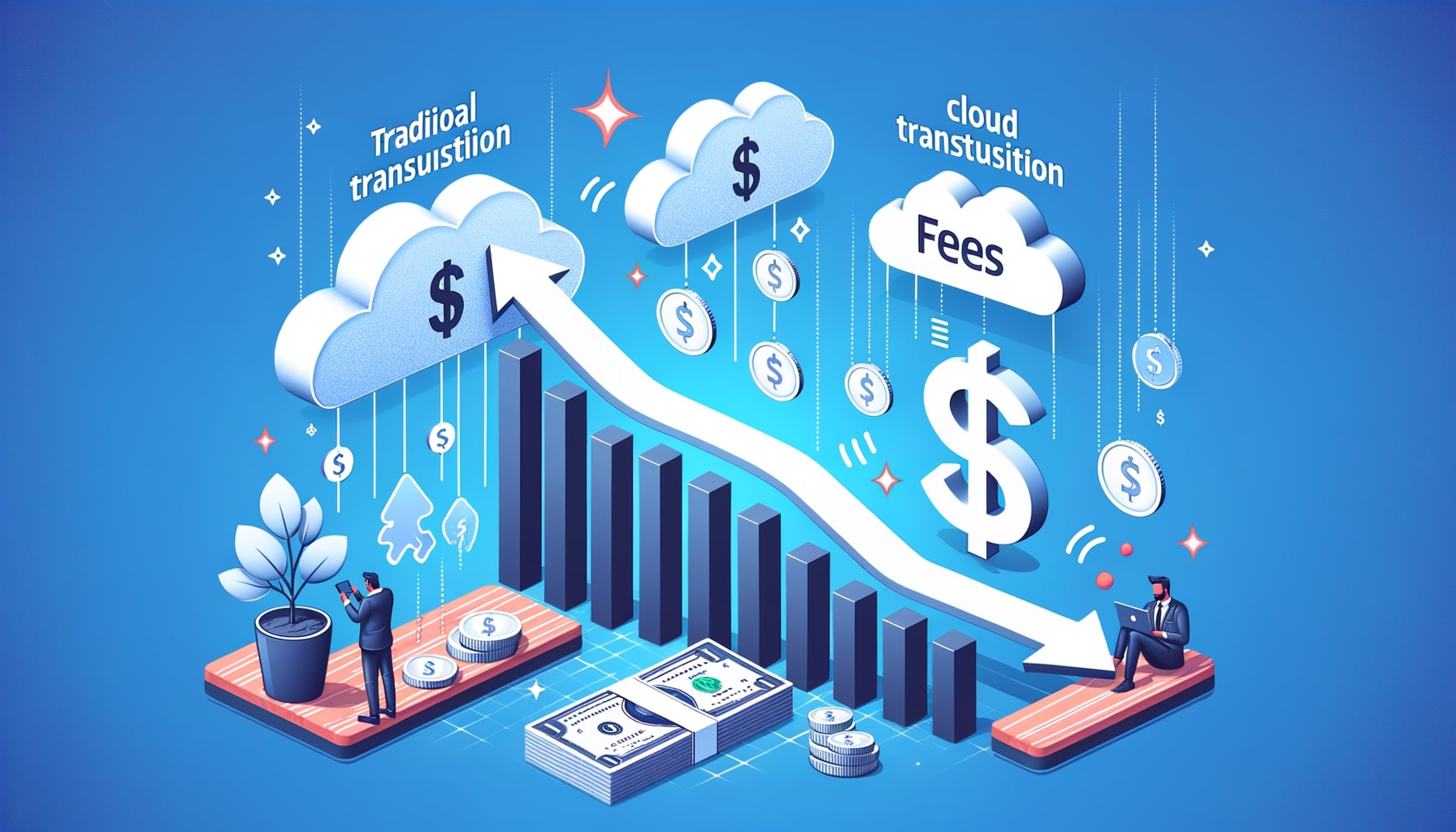Pros and Cons of Online Cloud Based POS Systems
In today’s digital age, businesses are constantly seeking ways to streamline their operations and improve efficiency. One area where this is particularly important is in the realm of point of sale (POS) systems. Traditionally, businesses have relied on on-premise POS systems, which require expensive hardware and software installations.
However, with the advent of online cloud based POS systems, businesses now have the option to move their operations to the cloud, offering a range of benefits and advantages. In this article, we will explore the pros and cons of online cloud based POS systems, providing a comprehensive guide for businesses considering making the switch.
Advantages of Online Cloud Based POS Systems
1. Accessibility and Convenience
One of the primary advantages of online cloud based POS systems is the accessibility and convenience they offer. With a cloud-based system, businesses can access their POS data from anywhere with an internet connection. This means that owners and managers can monitor sales, inventory, and other important metrics in real-time, even when they are not physically present at the store. This level of accessibility allows for greater flexibility and control over business operations, making it easier to make informed decisions and respond quickly to changing market conditions.
Furthermore, cloud based POS systems can be accessed from a variety of devices, including smartphones and tablets. This means that sales staff can process transactions and access customer information on the shop floor, improving customer service and reducing wait times. Additionally, cloud-based systems often offer mobile apps that allow businesses to manage their operations on the go, providing even greater convenience and flexibility.
2. Cost Savings and Scalability
Another significant advantage of online cloud based POS systems is the potential for cost savings and scalability. Traditional on-premise POS systems require businesses to invest in expensive hardware, software licenses, and ongoing maintenance and support. In contrast, cloud-based systems operate on a subscription-based model, where businesses pay a monthly or annual fee for access to the system. This eliminates the need for upfront capital investments and reduces ongoing costs, making it a more affordable option for small and medium-sized businesses.
Furthermore, cloud-based systems offer scalability, allowing businesses to easily add or remove users, locations, and features as their needs change. This flexibility is particularly beneficial for businesses that experience seasonal fluctuations in demand or are planning to expand in the future. With a cloud-based system, businesses can quickly and easily scale their operations up or down, without the need for costly hardware upgrades or software installations.
3. Real-Time Data and Analytics
Online cloud based POS systems provide businesses with access to real-time data and analytics, which can be invaluable for making informed business decisions. With a cloud-based system, businesses can track sales, inventory levels, and customer behavior in real-time, allowing them to identify trends, make data-driven decisions, and optimize their operations. This level of visibility and insight can help businesses improve their sales and marketing strategies, identify areas for cost savings, and enhance the overall customer experience.
Cloud based POS systems often come with built-in reporting and analytics tools, which allow businesses to generate customized reports and dashboards. These reports can provide valuable insights into sales performance, inventory turnover, and customer demographics, among other metrics. By analyzing this data, businesses can identify opportunities for growth, optimize their product offerings, and improve their overall profitability.
Disadvantages of Online Cloud Based POS Systems
1. Dependence on Internet Connection
One of the main disadvantages of online cloud based POS systems is their dependence on a stable internet connection. Without a reliable internet connection, businesses may experience downtime and disruptions to their operations, which can result in lost sales and frustrated customers. This is particularly problematic for businesses located in areas with poor internet infrastructure or those that rely on mobile data connections.
Furthermore, even with a stable internet connection, there is always the risk of outages or slowdowns, which can impact the performance of the POS system. While most cloud based POS providers have measures in place to mitigate these risks, businesses should be aware of the potential for disruptions and have contingency plans in place to minimize the impact on their operations.
2. Data Security and Privacy Concerns
Another significant concern with online cloud-based POS systems is data security and privacy. With a cloud-based system, businesses are entrusting their sensitive customer and transaction data to a third-party provider. While reputable cloud based POS providers have robust security measures in place, there is always the risk of data breaches or unauthorized access.
Businesses should carefully evaluate the security measures and protocols of any cloud based POS provider they are considering. This includes ensuring that data is encrypted both in transit and at rest, implementing strong access controls and authentication mechanisms, and regularly monitoring and auditing the system for any potential vulnerabilities. Additionally, businesses should have a clear understanding of how their data will be stored, processed, and shared by the cloud-based POS provider, and ensure that they are compliant with relevant data protection regulations.
3. Potential Integration Challenges
Integrating a cloud based POS system with existing business systems and processes can be a complex and time-consuming task. Businesses may need to integrate their POS system with their accounting software, inventory management system, e-commerce platform, and other systems to ensure seamless data flow and synchronization. This requires careful planning, coordination, and potentially the involvement of IT professionals or consultants.
Furthermore, not all cloud based POS systems offer the same level of integration capabilities. Businesses should carefully evaluate the integration options and capabilities of any cloud based POS system they are considering, ensuring that it can seamlessly integrate with their existing systems and processes. Failure to properly integrate the POS system can result in data inconsistencies, inefficiencies, and additional manual work, negating many of the benefits of moving to a cloud-based system.
Frequently Asked Questions (FAQs)
Q.1: Are online cloud based POS systems suitable for all types of businesses?
Online cloud-based POS systems can be suitable for a wide range of businesses, including retail stores, restaurants, cafes, and service-based businesses. However, the suitability of a cloud-based POS system depends on factors such as the size and complexity of the business, the specific industry requirements, and the existing IT infrastructure. It is important for businesses to carefully evaluate their needs and requirements before making a decision.
Q.2: Can online cloud based POS systems handle high transaction volumes?
Yes, online cloud based POS systems are designed to handle high transaction volumes. Reputable cloud-based POS providers have robust infrastructure and scalability measures in place to ensure that their systems can handle the demands of businesses with high transaction volumes. However, businesses should carefully evaluate the performance and scalability capabilities of any cloud-based POS system they are considering, particularly if they anticipate significant growth or seasonal fluctuations in demand.
Q.3: What happens if the internet connection goes down?
If the internet connection goes down, businesses using a cloud based POS system may experience disruptions to their operations. However, many cloud-based POS systems have offline mode capabilities, which allow businesses to continue processing transactions and collecting data even without an internet connection. Once the internet connection is restored, the system will automatically sync the data with the cloud. It is important for businesses to have a backup plan in place and ensure that their staff are trained on how to handle such situations.
Q.4: How secure is my data with a cloud-based POS system?
Data security is a top priority for reputable cloud-based POS providers. They employ industry-standard security measures, such as encryption, access controls, and regular monitoring and auditing, to protect customer data. However, businesses should carefully evaluate the security measures and protocols of any cloud-based POS provider they are considering and ensure that they are compliant with relevant data protection regulations.
Conclusion
Online cloud based POS systems offer a range of advantages and benefits for businesses, including accessibility and convenience, cost savings and scalability, and real-time data and analytics. However, businesses should also be aware of the potential disadvantages, such as dependence on internet connection, data security and privacy concerns, and potential integration challenges.
By carefully evaluating their needs and requirements, businesses can make an informed decision about whether to move to a cloud based POS system and select a provider that best meets their needs. With the right implementation and ongoing management, online cloud-based POS systems can help businesses streamline their operations, improve efficiency, and enhance the overall customer experience.










